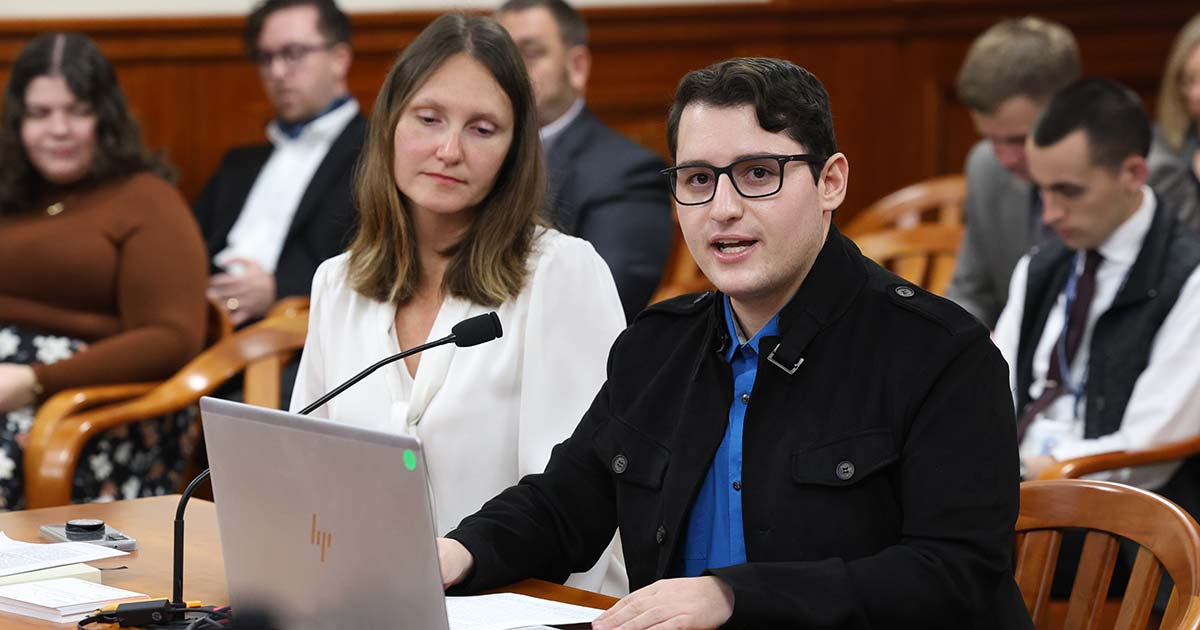LANSING, Mich., Oct. 12, 2023 – State Reps. Penelope Tsernoglou (D-East Lansing), Matt Bierlein (R-Vassar), Noah Arbit (D-West Bloomfield) and Ranjeev Puri (D-Canton) introduced bipartisan legislation today, House Bills 5141-45, that would require a disclaimer on political advertisements that contain audio, images or videos that were generated using artificial intelligence (AI). These bills would also create penalties for trying to use deepfakes to deceive and influence voters close to an election.
“Artificial Intelligence continues to evolve, while simultaneously becoming more and more popular,” Tsernoglou said. “Ahead of the 2024 election, we must ensure that political advertisements containing audio, videos or images that were generated by AI are properly labeled, so that voters are not misled by fake or digitally altered content.”
Many artificial intelligence experts, think tanks and organizations, such as The Brennan Center, have noted that the 2024 election cycle will bring the first national campaign season in which widely accessible AI tools allow users to synthesize audio in anyone’s voice, generate photo-realistic images of anybody doing nearly anything and power social media bot accounts with near human-level conversational abilities. It is abundantly clear that as artificial intelligence technologies continue to evolve, there must be precautions in place to make sure that they are well regulated and that bad actors can be held accountable.
“Artificial Intelligence is a rapidly evolving technology,” Bierlein said. “As we go forward, it’s going to have an even greater impact on our elections process and how people consume political information leading up to elections. Transparency is crucial as this technology moves forward. This bill is a win-win for voters and the integrity of our process. I’m looking forward to working with my colleagues across the aisle on a bipartisan package to address these concerns.”
The issue of AI regulation has been of particular interest not just in the U.S., but it has abroad as well. As the European Union (EU) inches closer to implementing the world’s first comprehensive legal framework for artificial intelligence through the EU AI Act, many are concerned that there is a growing disparity between the U.S. and EU’s approach to regulating AI. Now, Michigan will look to take the lead on AI regulation in the United States, something the U.S. as a whole has lagged behind on.
“As malignant actors have continued their efforts to distort elections and seed disinformation to voters, artificial intelligence marks the next front in our battle to defend democracy,” Arbit said. “This vital legislation will position Michigan as the national leader in protecting elections from AI-powered disinformation, and I am proud to join Representatives Tsernoglou, Bierlein and Puri in championing this urgent effort.”
“Simply put, regulation and disclaimers on the use of AI are long overdue in Michigan,” Puri said. “By labeling political ads that include AI-generated content, we are ensuring that voters are able to stay well-informed and, in turn, less vulnerable to disinformation.”
# # #

